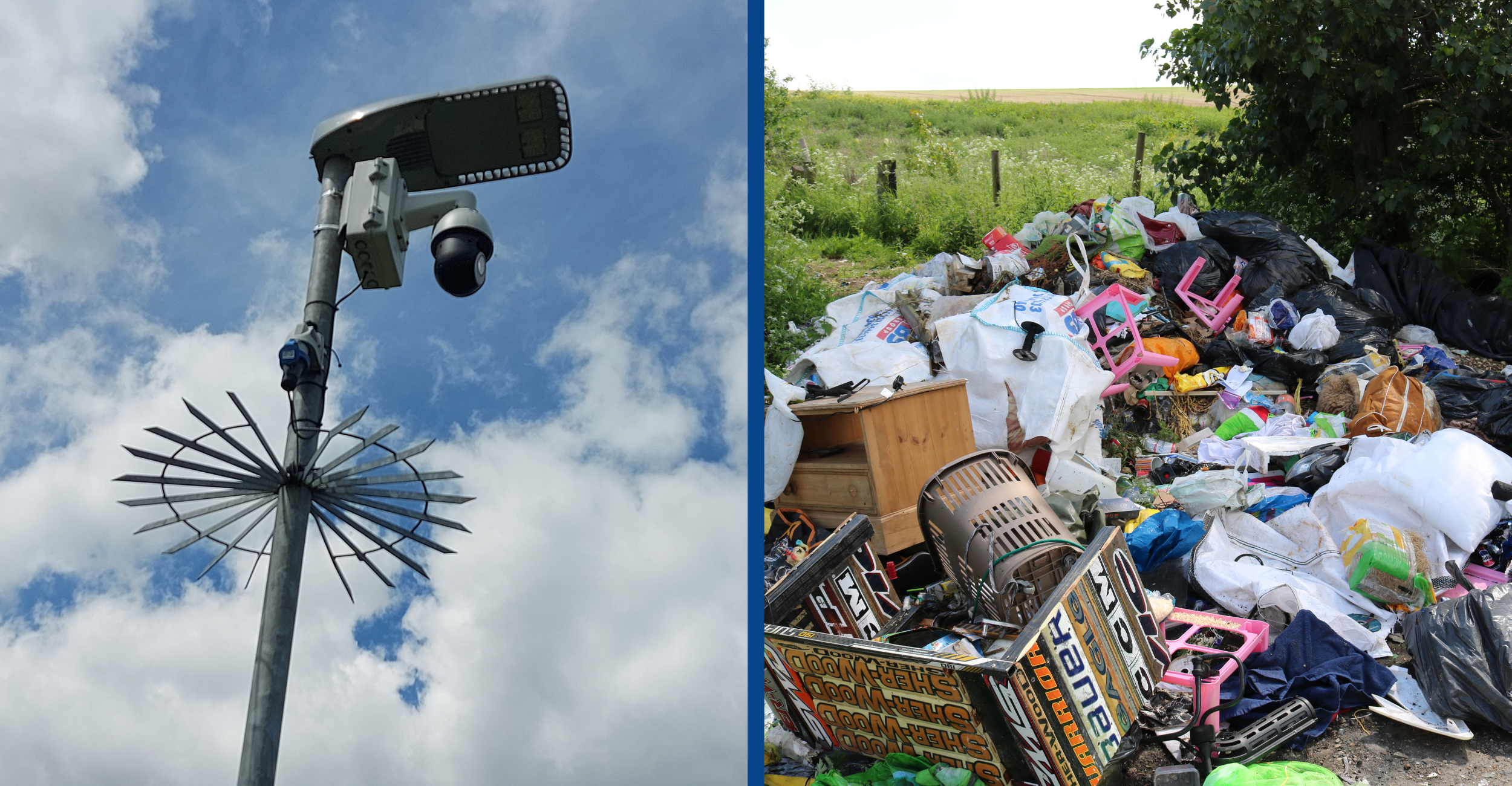
CCTV installed to stop fly tippers
Published
Wednesday 31 July, 2024
Updated
Wednesday 31 July, 2024
Swale Borough Council has installed three new CCTV cameras in fly-tipping hotspots to catch illegal waste carriers in the act.
The cameras have been installed at locations known for fly-tipping in Sheerness and Sittingbourne.
The cameras are monitored 24/7 by the council’s CCTV control room, who will help document the evidence the cameras gather and are ready to report any illegal activity.
They are also mobile and can be redeployed in other rural and urban areas that see a spike in waste related crime.
This forms part of the council’s £32,900 campaign to tackle waste related crimes, which is being funded by a grant from the governments’ Rural Payments Agency (RPA).
Swale has some of the highest levels of fly-tipping in Kent, which costs the council considerable resources to clear, and these measures are aimed at tackling this.
The funding will also be used to buy additional CCTV cameras, which act as a deterrent to fly-tippers, gathers evidence and helps the council catch repeat offenders.
The grant will also fund a campaign to promote households’ responsibility and duty of care when disposing of their waste.
A mobile joint operation between Kent Police’s Rural Taskforce and the council will also benefit from additional funding.
This work – known as Op Assist – stops suspected fly-tippers, gathers evidence and takes enforcement action for waste related crimes.
The council also recently increased waste-related fixed penalty notices (FPNs) seeing the fine for serious fly-tipping increase to £1,000, meaning being caught committing a waste related crime will be costly.
Cllr Rich Lehmann, chair of the Environment and Climate Change Committee, said:
“It is great to see that the grant we received is being put to good use. These new, additional cameras will act as a visual deterrent and will also help capture the evidence we need to take repeat offenders to court.
“Since being installed we haven’t had any fly-tipping at the monitored sites, which is a great sign as people are seeing the warnings and thinking twice before breaking the law.
“We are committed to tackling this issue and, by increasing the maximum charge for FPNs, want to send a strong message to fly-tippers.
“It costs the council, and ultimately the taxpayer, considerable amounts of money to clean up after the selfish individuals who are using our alleys and countryside as their dumping ground.
“It is important that everyone makes sure their waste is disposed of correctly, if fly-tipped waste is linked back to you, you could also be facing a fine.
“If we work together, we can stop the waste getting into the hands of fly-tippers. Please make sure the companies or individuals you are paying to remove your waste have the appropriate license and that you get a waste transfer note.”
Duty of care - what can you do to dispose of your waste responsibly?
Fly-tippers often target households via social media or local advertising, luring customers in with cheap rates to dispose of unwanted furniture, building rubble or garden waste.
However, these unlicensed waste carriers often simply dump the waste wherever they can get away with it, including in Kent’s country lanes.
Householders or small businesses found to be using criminals to dispose of their waste can and are being prosecuted by local authorities in Kent with fixed penalty notices. Failure to pay such an FPN may result in court action where fines can be significantly larger.
To prevent this, householders should check whether someone is licenced to carry waste by visiting the Environment Agency website, or calling 03708 506506.
It also helps if householders receive a written receipt or transfer note, including contact details, description of waste removed and details of where the waste is being taken to.
Check what can now be disposed of for free here: Charges at HWRCs - Kent County Council



